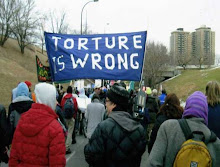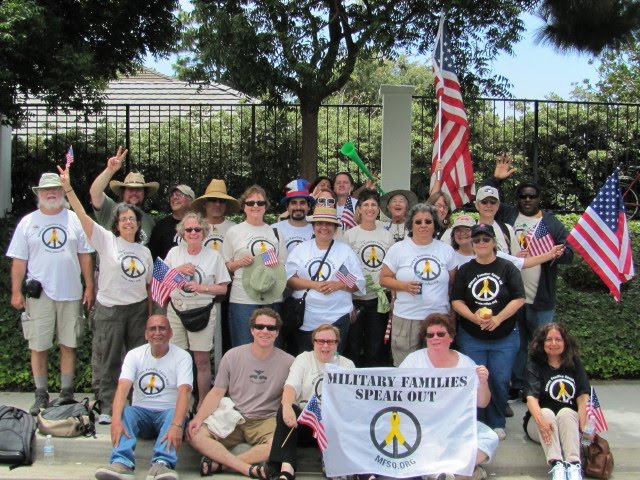BAGHDAD – Opposition lawmakers shouted and pounded their desks in protest Thursday in a second day of emotional debate in parliament over a proposed agreement with the U.S. that would allow American forces to stay in Iraq for three more years.
At least three parliamentary factions, including lawmakers loyal to Shiite leader Muqtada al-Sadr, are fighting the agreement. But their opposition is not expected to prevent it from passing.
"The agreement ushers in a new occupation of Iraq, the duration of which we cannot tell," said Ajeel Abdul-Hussein, the senior Sadrist lawmaker.
If approved, the security pact would for the first time establish a clear timetable for the withdrawal of American forces from Iraq, and it would give Iraqi authorities far more oversight over the U.S. military presence than they currently have. It took nine months to negotiate the deal.
Prime Minister Nouri al-Maliki went on national television Tuesday to tell Iraqis the agreement is a step toward full sovereignty and to reassure neighboring Syria and Iran that he will not allow Iraq to be a base for attacks against them.
Sadrist lawmakers disrupted a reading of the proposed agreement for the second straight day. On Wednesday, they scuffled with security guards after one of them aggressively approached the bench while a lawmaker from the ruling Shiite coalition was reading the text.
On Thursday, they attempted to drown out the lawmaker reading it. Shouting matches broke out and Speaker Mahmoud al-Mashhadani was barely able to control the chaos that lasted about 20 minutes.
Parliament managed to complete the second reading, the last step prior to opening debate on the pact ahead of a vote scheduled for Monday. However, the disruptions on Wednesday could delay the vote by a day or two.
Ali al-Adeeb, a Shiite lawmaker close to al-Maliki, said it was necessary for American forces to remain in Iraq because of the insurgency even if the government, like opposition lawmakers, saw the U.S. presence as "unwanted."
Al-Maliki warned the alternative to the security pact — a renewal or an extension of the U.N. mandate providing legal cover for U.S. forces in Iraq — is worse.
"The danger of an extension is the removal of Iraq's sovereignty and facing the same problem again, which will drive us back to searching for another agreement" with the Americans, al-Maliki told a news conference.
He assured Iraqis the timeline for the withdrawal of U.S. forces under the agreement — out of cities by June 30, 2009, and the entire country by the end of 2011 — is not negotiable and could even be moved up.
The Cabinet approved the agreement last weekend, meaning the pact stands a good chance of passage in 275-seat parliament where the government's parties dominate.
But the vocal opposition in parliament could mean a narrow victory for the government in the vote, which would cast a shadow on the legitimacy of the deal that al-Maliki has said should be approved with a broad consensus.
Iraq's most influential Shiite cleric, Grand Ayatollah Ali al-Sistani, said the deal would be acceptable only if approved by a wide margin in parliament. Al-Sistani enjoys enormous influence among Iraq's Shiite majority. He could bury the deal if he speaks publicly against it.
How the deal fares in parliament will also have implications for the fortunes of Iraq's major parties in provincial elections on Jan. 31 and a general election late in 2009.
The Sadrists hope their anti-American stance will win them votes of Iraqis who see the Americans as occupiers who plan to stay indefinitely.
But al-Maliki's Dawa party and the Supreme Islamic Iraqi Council, its senior government partner, hope passage by a wide margin could win them votes as the parties that engineered a timetable for the Americans' departure.
If the agreement passes the legislature, it will go to the president and his two deputies for ratification. Each one has veto power.
Shiite coalition parties, which have 85 seats, and the Kurdish bloc, with 54, firmly support the pact, and their votes alone amount to a thin majority. They might also pick up support from smaller parties.
The position of their Sunni Arab allies, the three-party Iraqi Accordance Front, is less certain and many of those 44 lawmakers might not back the deal.
Beside the Sadrists, who have about 30 lawmakers, the small Shiite Fadhila party, which has 15 seats, and a small Sunni Arab bloc with 11 seats are firmly opposed to the deal.
Also Thursday, the U.S. military said a leader of al-Qaida in Iraq, blamed in the 2004 abduction and murder of Army reservist Staff Sgt. Matt Maupin of Batavia, Ohio, had been killed.
The military said Hajji Hammadi also was the mastermind of a June 26 attack that killed three U.S. Marines, two interpreters and more than 20 Iraqis in western Anbar province.
It said U.S. forces killed Hammadi and another armed insurgent on Nov. 11 in Baghdad.





























































































































No comments:
Post a Comment